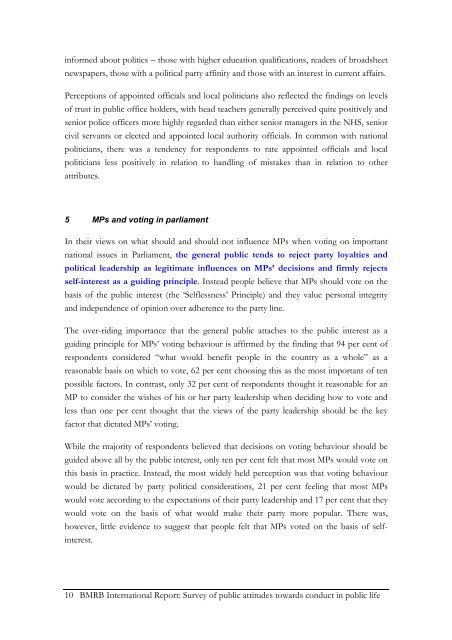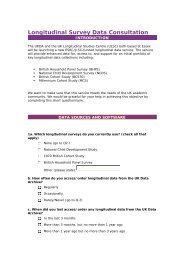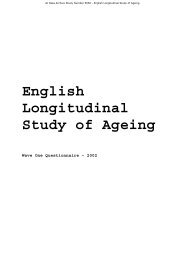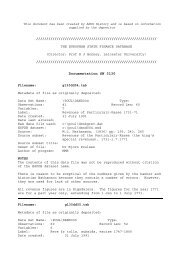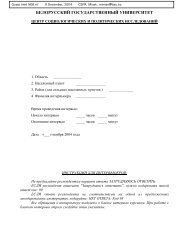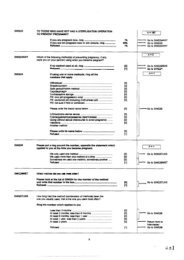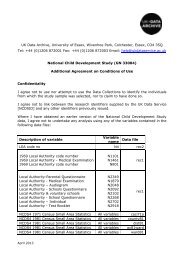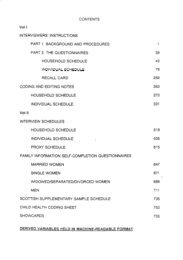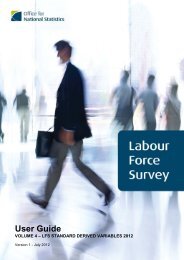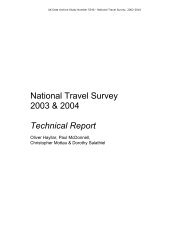The Seven Principles of Public Life - ESDS
The Seven Principles of Public Life - ESDS
The Seven Principles of Public Life - ESDS
Create successful ePaper yourself
Turn your PDF publications into a flip-book with our unique Google optimized e-Paper software.
informed about politics – those with higher education qualifications, readers <strong>of</strong> broadsheet<br />
newspapers, those with a political party affinity and those with an interest in current affairs.<br />
Perceptions <strong>of</strong> appointed <strong>of</strong>ficials and local politicians also reflected the findings on levels<br />
<strong>of</strong> trust in public <strong>of</strong>fice holders, with head teachers generally perceived quite positively and<br />
senior police <strong>of</strong>ficers more highly regarded than either senior managers in the NHS, senior<br />
civil servants or elected and appointed local authority <strong>of</strong>ficials. In common with national<br />
politicians, there was a tendency for respondents to rate appointed <strong>of</strong>ficials and local<br />
politicians less positively in relation to handling <strong>of</strong> mistakes than in relation to other<br />
attributes.<br />
5 MPs and voting in parliament<br />
In their views on what should and should not influence MPs when voting on important<br />
national issues in Parliament, the general public tends to reject party loyalties and<br />
political leadership as legitimate influences on MPs’ decisions and firmly rejects<br />
self-interest as a guiding principle. Instead people believe that MPs should vote on the<br />
basis <strong>of</strong> the public interest (the ‘Selflessness’ Principle) and they value personal integrity<br />
and independence <strong>of</strong> opinion over adherence to the party line.<br />
<strong>The</strong> over-riding importance that the general public attaches to the public interest as a<br />
guiding principle for MPs’ voting behaviour is affirmed by the finding that 94 per cent <strong>of</strong><br />
respondents considered “what would benefit people in the country as a whole” as a<br />
reasonable basis on which to vote, 62 per cent choosing this as the most important <strong>of</strong> ten<br />
possible factors. In contrast, only 32 per cent <strong>of</strong> respondents thought it reasonable for an<br />
MP to consider the wishes <strong>of</strong> his or her party leadership when deciding how to vote and<br />
less than one per cent thought that the views <strong>of</strong> the party leadership should be the key<br />
factor that dictated MPs’ voting.<br />
While the majority <strong>of</strong> respondents believed that decisions on voting behaviour should be<br />
guided above all by the public interest, only ten per cent felt that most MPs would vote on<br />
this basis in practice. Instead, the most widely held perception was that voting behaviour<br />
would be dictated by party political considerations, 21 per cent feeling that most MPs<br />
would vote according to the expectations <strong>of</strong> their party leadership and 17 per cent that they<br />
would vote on the basis <strong>of</strong> what would make their party more popular. <strong>The</strong>re was,<br />
however, little evidence to suggest that people felt that MPs voted on the basis <strong>of</strong> self-<br />
interest.<br />
10 BMRB International Report: Survey <strong>of</strong> public attitudes towards conduct in public life


